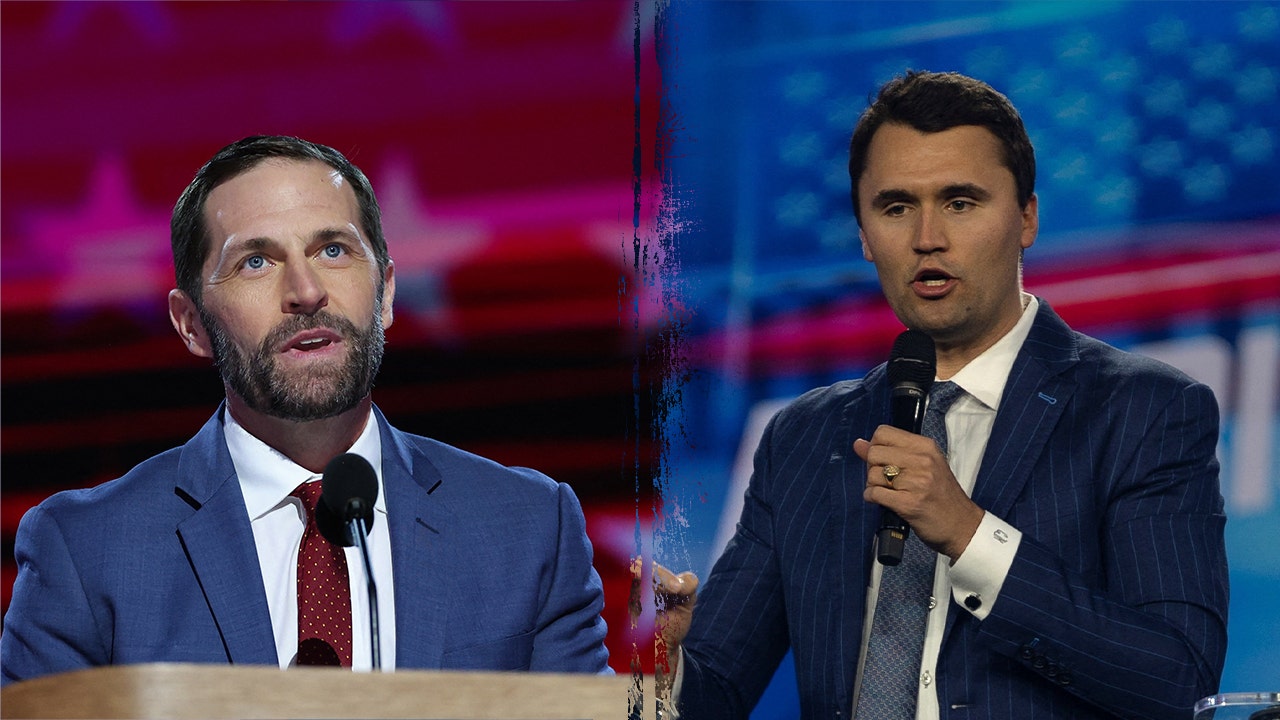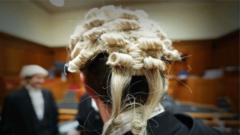Is the Pentagon Right to Discipline Service Members Celebrating Charlie Kirk's Death?

Published: 2025-09-16 01:30:54 | Category: Trump GNEWS Search
The Pentagon is taking a firm stance against military personnel who celebrate the recent killing of political figure Charlie Kirk, igniting a fierce debate over the boundaries of free speech within the military context. As the Pentagon seeks accountability, Democrats argue that this crackdown infringes upon First Amendment rights, posing a significant clash between military discipline and constitutional freedoms.
Last updated: 27 October 2023 (BST)
Key Takeaways
- The Pentagon is pursuing consequences for military members who celebrate Charlie Kirk's killing.
- Top officials assert that such conduct is unacceptable, while critics label it as a violation of free speech.
- Army Col. Scott Stephens and Maj. Bryan Bintliff have faced suspension for their comments on social media.
- The State Department plans to revoke visas of foreign nationals who glorify violence related to this incident.
- The discussion highlights the tension between military discipline and individual political beliefs.
The Incident: Charlie Kirk's Killing
Charlie Kirk, a prominent conservative figure and founder of the organisation Turning Point USA, was fatally shot on Wednesday in Orem, Utah, while engaging with college students at Utah Valley University. His death has sparked outrage and celebration in various circles, leading to a national conversation about the appropriateness of such reactions.
Military Response to Civilian Reactions
The Pentagon has made it clear that it will not tolerate any military or civilian personnel who celebrate the assassination of an American, framing it as a matter of national integrity. Sean Parnell, the chief spokesperson for the Pentagon, stated that all service members take an oath to defend the Constitution and that those who rejoice in acts of violence are deemed unfit for service.
Suspensions and Reactions
In the wake of Kirk's death, Army Col. Scott Stephens was suspended for social media posts that reportedly praised the killing. One of his posts claimed that while Kirk's death was tragic, it was a relief that he was no longer spreading what Stephens described as hate and discrimination. Similarly, Maj. Bryan Bintliff, known online as "Bryan Harlow," was also suspended after posting that "a monster died today," further intensifying the scrutiny on military personnel's conduct in relation to political events.
The Free Speech Debate
As the Pentagon moves forward with its stance, Democratic leaders, including Rep. Jason Crow from Colorado, have voiced strong opposition. Crow, a former Army Ranger himself, emphasised the importance of distinguishing between condemning political violence and punishing individuals for their political beliefs. He argued that hunting down service members for their views is not only dangerous but fundamentally un-American.
First Amendment Rights vs. Military Discipline
This situation underscores a critical tension in American society: the balance between maintaining military discipline and upholding free speech rights. The First Amendment protects individuals' rights to express their views, even when those views are controversial or offensive. However, the military operates under a unique set of rules and expectations, which complicates how free speech is interpreted within its ranks.
State Department's Position
The State Department has also taken action, announcing that it will scrutinise social media posts to revoke visas for foreign nationals who glorify violence related to Kirk's death. A senior official articulated that the U.S. should not welcome individuals who celebrate violence against political figures, suggesting that such attitudes are incompatible with American values.
Implications for Foreign Nationals
The move to revoke visas highlights the broader implications of this incident, as it not only affects military personnel but also foreign nationals engaging in discussions about political violence. The Department's commitment to scan social media for such sentiments reflects a growing concern about the influence of foreign opinions on domestic issues.
The Broader Context of Political Violence
This controversy is part of a larger pattern of political violence that has been increasingly visible in the United States. The assassination of public figures, whether through direct violence or through the incitement of hatred, raises critical questions about political discourse, public safety, and the responsibilities of citizens and leaders alike.
Historical Precedents
Historical instances of political violence have often led to calls for stricter regulations on speech and expression. However, the challenge lies in navigating these waters without infringing upon the fundamental rights guaranteed by the Constitution. As the U.S. grapples with these issues, the responses from both military and civilian sectors will shape the future of political expression in the country.
What Happens Next?
As the Pentagon and State Department continue to take a stand against individuals celebrating political violence, it remains to be seen how this will play out in terms of policy changes and public perception. The balance between maintaining order within military ranks and protecting individual rights is a delicate one, and ongoing debates will likely influence future discourse on free speech and military conduct.
Looking Ahead
The discussions surrounding this incident will likely lead to further scrutiny of military policies regarding free speech and the expression of political beliefs. As more service members face potential consequences for their online activities, the implications for military culture and public perceptions of service members' rights will be significant.
FAQs
What happened to Charlie Kirk?
Charlie Kirk, a conservative political figure, was shot and killed on 25 October 2023, in Orem, Utah, while speaking at Utah Valley University.
Why is the Pentagon taking action against service members?
The Pentagon is pursuing consequences for those who celebrate Kirk's killing, arguing that such conduct is unacceptable and undermines the oath to defend the Constitution.
What are the arguments against the Pentagon's stance?
Opponents, including Democrats, argue that the Pentagon's actions infringe upon First Amendment rights and that punishing individuals for their political beliefs is un-American.
What is the State Department's position?
The State Department plans to revoke visas of foreign nationals who glorify violence, stating that such attitudes are not aligned with American values and safety.
How does this relate to free speech in the military?
The situation highlights the tension between military discipline and individual free speech rights, as service members are held to different standards regarding their expressions of political beliefs.
What could happen next regarding military policy?
Future discussions may lead to policy changes within the military concerning how free speech is managed among service members, particularly in the context of political violence.
As this situation unfolds, it raises important questions about the balance between free speech and military discipline in the face of political violence. How should societies navigate these complex issues moving forward? #FreeSpeech #MilitaryDiscipline #PoliticalViolence



